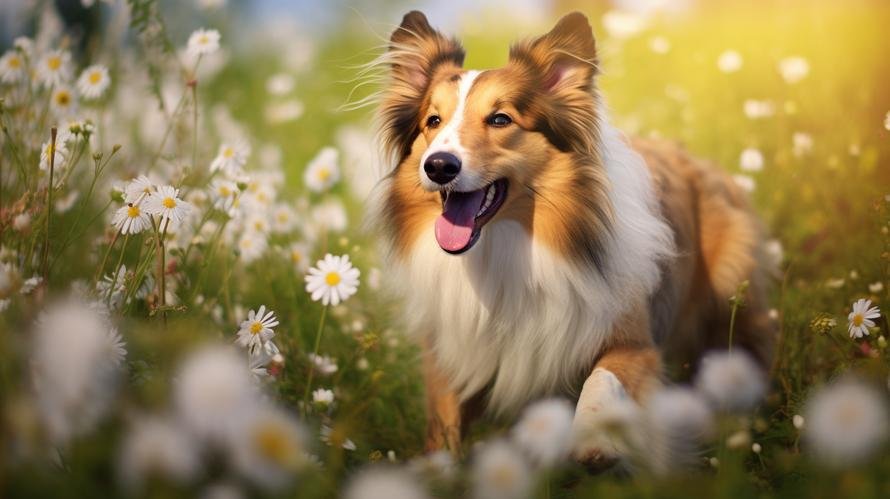Did you know there’s a dog breed capable of outsmarting its owner? This breed not only boasts of superior intelligence but also dazzles with its loyalty and playfulness. I bet you may be wondering where you might find such an amazing canine. Look no further than the Shetland Sheepdog, commonly known as Sheltie!
A compact but high-energy herding dog breed, the Shetland Sheepdog traces its origins back to the Shetland Islands of Scotland. Earlier, Shelties were employed to guard the homestead and herd sheep. Today, they’re the champions in obedience, agility, and herding trials, and above all, they make excellent family pets. However, a question that seems to linger in many would-be dog owners’ minds is – are Shetland Sheepdogs dangerous?
Let us embark on an intriguing journey to explore the gentle nature of the Shetland Sheepdog, bust some myths, and equip ourselves with the knowledge needed to be the best family for this intelligent breed.
To begin with, Shelties are primarily herding dogs. They have been selectively bred for their intelligence and herding instincts. Their intrinsic nature is to chase after things, group them together, or redirect their path- and this includes even children! But does that make them dangerous? Absolutely not! This activity is merely a reflection of their ancient duties and in no way implies harm or danger.
That being said, it is important to channel this breed’s energy in a constructive manner. Shelties left bored with excess energy may resort to endless barking, chewing, or other destructive behavior – none of which makes them ‘dangerous’ but can be quite challenging for the owners. In fact, training them for competitive sports like agility, obedience, and herding can be an excellent way to keep them mentally and physically stimulated.
Moreover, Shelties are often expressive with barks. They use barking to communicate and to alert their families, a trait that stems from their herding background. While some people may misinterpret this characteristic as aggressive, it couldn’t be farther from the truth.
Taking a look at their aggression stats, Shelties rank relatively low on the aggression scale across various studies. According to a research study conducted by Dr. Stanley Coren, a respected canine psychologist, Shelties were found to be less likely to bite or attack unfamiliar people or other dogs than the average breed. This gentle, friendly nature aids in making the Shetland Sheepdog an excellent family companion.
However, no dog breed, including the Sheltie, is inherently good or bad. It largely comes down to their upbringing, socialization, training, and how they are treated by their human family. If a Sheltie (or any dog, for that matter) is mistreated, neglected, or improperly trained, they can develop behavioral issues. Therefore, pet owners need to invest time and effort into training and socializing their Sheltie from a young age to ensure they grow up to be friendly, confident, and well-adapted adult dogs.
Shetland Sheepdogs also happen to be wonderful with children. Their gentle temperament, coupled with their playful nature and protective instincts, make them excellent playmates and vigilant watchdogs for kids. However, it’s advised to supervise interactions between young children and any dog to ensure the safety of both parties. Be sure to teach children how to approach and touch dogs, preventing any biting or ear or tail pulling on the part of either party.
So, asking if a Sheltie is dangerous is akin to asking if a helpful teaching tool can be harmful – it all comes down to how it’s used! A well-bred, well-raised Sheltie is about as danger-prone as a plush toy and just as cuddly.
A little patience, understanding, and time investment can go a long way in enjoying a rewarding relationship with the intelligent and affectionate Shetland Sheepdog. They’re not any more dangerous than any other breed and, when properly socialized and trained, can make an excellent addition to your family. The real danger lies not in the breed itself, but in uneducated ownership. As prospective or current Sheltie owners, let’s arm ourselves with knowledge, understanding, and compassion, which are surefire ways to bring out the best in any breed, including the delightful Sheltie.



